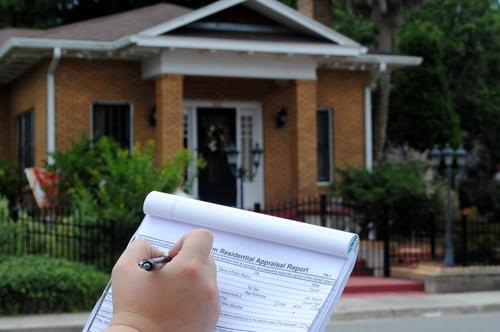When buying or selling a home, having an appraisal done is an important part of the process for both the buyer AND the seller. Although the primary and direct benefit is for the buyer, it is still a necessary aspect of the real estate transaction for the seller, too.
First, let's discuss what an appraisal is and why you need one in the first place.

An appraisal is an estimate of a property's value based on factors such as location, amenities and condition in comparison to similar properties that have recently sold in your area. Further, an appraisal is required on all purchases being financed so lenders can ensure the property is worth at least as much as the buyer is borrowing from their lender. This is not only a benefit for the buyer, but is a direct benefit for the lender as it is the only way they get to see the property and know what they are lending their money on.
Now, beyond the basics of what an appraisal is and why it has to be done, let's talk about how appraisals can make or break your transaction.For the buyer— the appraisal serves as an important tool in ensuring that you don't pay more for a home than an "expert" (an appraiser) believes it is worth at a specific point in time.
For the seller—the appraisal is just another part of the transaction you want cleared as quickly as possible to be assured that the transaction will remain on track.
By way of example, your Realtor® has negotiated mutually agreeable terms and all parties have signed the contract. Then everyone finds out the appraisal has come in under the agreed upon contract price. We know the lender is not going to loan the buyer money for more than the appraised value of the home, but that doesn't necessarily mean the seller is willing to come down on price either.
At this point, one of a few things typically happens:
- The seller acknowledges that they may have tried to sell their home for more than it is worth, and agrees to adjust the price to align with the appraisal.
- The buyer agrees that the appraisal doesn't take into consideration the intangible benefits they see in their dream home, and then agrees to bring additional money to the closing table to bridge the gap between the agreed upon price and the appraised value.
- Both parties renegotiate the contract to a mutually agreeable price (maybe somewhere between the original purchase price and the appraised value), and the buyer also agrees to bring additional money to the closing table to bridge the gap between the agreed upon price and the appraised value.
- The two parties can't agree on a resolution and the transaction is cancelled.
Whether you're a buyer or a seller, you can see how an appraisal might impact your previously smooth-sailing transaction. One thing we'd like you to remember, though, is that not all appraisals will affect you negatively. When an appraisal is done right, and the home has also been priced right, an appraisal will serve as a guarantee that you are buying (or selling) a great home for a fair price.




